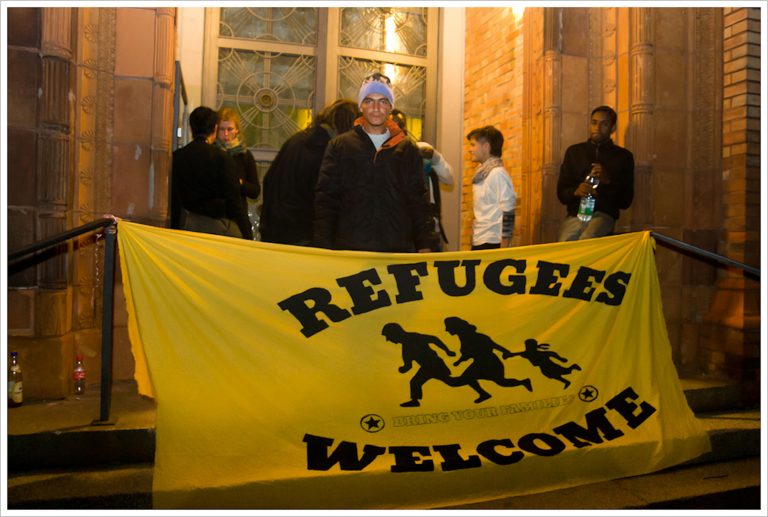
Following a year that saw 1.2 million newcomers—one million Ukrainian refugees and well over 200,000 asylum seekers—make their way to Germany, the Government of the Federal Republic is now expecting another 800,000 asylum seekers and migrants to reach the country in 2023.
Andreas Burdag, a team leader for social affairs and housing in the district of Potsdam-Mittelmark in the state of Brandenburg, delivered the news to the daily newspaper BZ Berlin, saying it came as a shock to local government officials. Of the expected 800,000 new arrivals, Burdag says “27,000 are to go to Brandenburg” while 2,205 will be relocated to the district of Potsdam Mittelmark.
If the figure of 800,000—which is believed to have come from a source close to the Federal Interior Ministry—is indeed correct, it would equal two-thirds of the number of asylum seekers and Ukrainian refugees who came to Germany in 2022.
Burdag, a member of the Social Democratic Party (SPD), told the newspaper that the district office has no idea where to accommodate the expected new arrivals, saying: “We are 97% full and have 2,481 asylum seekers in apartments, collective accommodation, rent houses. The market for large accommodations is empty, with day-care centers and schools at the limits of their capacity.”
To cope with the problem, district administrators from Brandenburg have called for increased deportations and—less explicitly—for the establishment of deportation centers that can be used to return asylum seekers to other EU countries where they have already been registered.
Paul-Peter Humpert (SPD), the managing director of the district council, speaks for the 14 Brandenburg districts and told the German press that of the 4,549 rejected asylum seekers that were living in Brandenburg as of last year, only 172 were deported while another 308 left on their own volition—a return rate of approximately 10%. Humpert has called on the federal government “to be much more consistent in its deportations” of rejected asylum seekers.
Humpert’s SPD colleague Stephan Loge, who serves as the district administrator of the Dahme-Spreewald district in Brandenburg, has urged the federal government to put an end to secondary migration movements. “People should be sent back quickly to the EU countries where they were first registered as asylum seekers,” Loge insisted, before adding that “only then can we meaningfully integrate those who have already been registered.”
As The European Conservative previously reported, the EU Commission revealed late last month the number of asylum applications submitted across the 27 EU countries rose to 923,911 last year, up from 630,890 the previous year, representing an increase of 46.5%— the highest since the 2015 European migrant crisis.
In the wake of the unsustainable uptick in new arrivals, many of whom have applied for asylum despite not being in need of international protection, EU Home Affairs Commissioner Ylva Johansson (S&D) has presented a plan which aims to accelerate the return of rejected asylum seekers to their country of origin.
“Those who do not have the right to reside in the European Union must be sent back to their country of origin,” Johansson told journalists at a press conference in Brussels last month, adding that the number of successful repatriations carried out “needs to be increased.”
